Opinion Article
Volume 1 Issue 5 - 2017
Toxicology Hashimoto’s Thyroiditis Facts Newsletter
Novick Integrated Medicine, USA
*Corresponding Author: Debbie Novick, Novick Integrated Medicine, 171 Saxony RD., Suite 107, Encinitas,CA 92024 USA.
Received: August 24, 2017 Published: August 31, 2017
-What is Leaky Gut Syndrome?
-L-Glutamine and Hashimoto’s
-Curcumin Extract & inflammation
-Anti-inflammatory foods for Hashimoto’s
-L-Glutamine and Hashimoto’s
-Curcumin Extract & inflammation
-Anti-inflammatory foods for Hashimoto’s
What is leaky gut?
This term is all over the peer-reviewed literature around the world. From the Journal of Gastroenterology to the Journal of Neuro-Endocrinology, the evidence states that leaky gut syndrome leads to brain inflammation, destruction of the intestinal lining, migraines, CFS, depression, irritable bowel syndrome, ulcerative colitis, Hashimoto’s, Diabetes Mellitus, and many more.
This term is all over the peer-reviewed literature around the world. From the Journal of Gastroenterology to the Journal of Neuro-Endocrinology, the evidence states that leaky gut syndrome leads to brain inflammation, destruction of the intestinal lining, migraines, CFS, depression, irritable bowel syndrome, ulcerative colitis, Hashimoto’s, Diabetes Mellitus, and many more.
The definition is as follows-
Gastrointestinal tract dysfunction caused by antibiotics, toxins, poor diet, parasites or Infections, leading to increasedintestinal wall permeability and absorption of toxins, bacteria, fungi, parasites, etc; LGS may be linked to allergy and autoimmunity. Addressing this widespread ailment is key in keeping the immune system and the rest of your body healthy. Hashimoto’s sufferers will achieve more control over their health and wellness by healing the gut.
Gastrointestinal tract dysfunction caused by antibiotics, toxins, poor diet, parasites or Infections, leading to increasedintestinal wall permeability and absorption of toxins, bacteria, fungi, parasites, etc; LGS may be linked to allergy and autoimmunity. Addressing this widespread ailment is key in keeping the immune system and the rest of your body healthy. Hashimoto’s sufferers will achieve more control over their health and wellness by healing the gut.
L-Glutamine and Hashimoto’s
L-Glutamine is an essential amino acid that has been found to be highly beneficial in healing the gut lining and “loss of intestinal barrier function is necessary to develop autoimmunity.” Leaky gut syndrome also leads to multiple metabolic dysfunctions due to malnutrition. The benefits of taking L-glutamine is to repair leaky gut, and is the foundation of saving the further destruction of the thyroid and other organs under attack by the immune system, which is directly linked to leaky gut syndrome (intestinal permeability).
L-Glutamine is an essential amino acid that has been found to be highly beneficial in healing the gut lining and “loss of intestinal barrier function is necessary to develop autoimmunity.” Leaky gut syndrome also leads to multiple metabolic dysfunctions due to malnutrition. The benefits of taking L-glutamine is to repair leaky gut, and is the foundation of saving the further destruction of the thyroid and other organs under attack by the immune system, which is directly linked to leaky gut syndrome (intestinal permeability).
Curcumin Extract & inflammation
Curcumin is the active ingredient in turmeric; there are literally hundreds of studies that confirm its powerful anti-inflammatory and protective effects on every single cell of the body. This compound has been found to protect your body from cancer, autoimmunity, allergies, and any other inflammatory processes. For Hashimoto’s Thyroiditis sufferers, this is a crucial part of maintaining a happy immune system and a clear focused brain.
Curcumin is the active ingredient in turmeric; there are literally hundreds of studies that confirm its powerful anti-inflammatory and protective effects on every single cell of the body. This compound has been found to protect your body from cancer, autoimmunity, allergies, and any other inflammatory processes. For Hashimoto’s Thyroiditis sufferers, this is a crucial part of maintaining a happy immune system and a clear focused brain.
Anti-inflammatory foods for Hashimoto’s
There are foods that have shown anti-inflammatory properties. We all battle inflammation on a daily basis. It is the most damaging factor in most disease and pain. Hashimoto’s Thyroiditis sufferers will greatly benefit from consuming ginger and its extracts, which has been found to have anti-inflammatory, and gut protective properties.
References
- Jagetia GC and Aggarwal BB. “Spicing up" of the immune system by curcumin”. Journal of Clinical Immunology 27.1 (2007): 19-35.
- Kurien BT., et al. “Heat-solubilized curry spice curcumin inhibits antibody-antigen interaction in in vitro studies: a possible therapy to alleviate autoimmune disorders” Molecular Nutrition & Food Research 54.8 (2010): 1202-1209..
- Onodera T., et al. “Influence of particle size on the in vitro and in vivo anti-inflammatory and anti-allergic activities of a curcumin lipid nanoemulsion”. International Journal of Molecular Medicine 35.6 (2015): 1720-1728.
- Cho JA1 and Park E. “Curcumin utilizes the anti-inflammatory response pathway to protect the intestine against bacterial invasion”. Nutrition Research and Practice 9.2 (2015): 117-122.
- Shi X., et al. “Curcumin inhibits Aβ-induced microglial inflammatory responses in vitro: Involvement of ERK1/2 and p38 signaling pathways” Neuroscience Letters 6 (2015): 105-110.
- Östensson M., et al. “A possible mechanism behind autoimmune disorders discovered by genome-wide linkage and association analysis in celiac disease”. Plos one 8.8 (2013): e70174.
- Wang B., et al. “Glutamine and intestinal barrier function” Amino Acids 47.10 (2015): 43-54.
- Zuhl MN., et al. “Effects of oral glutamine supplementation on exercise-induced gastrointestinal permeability and tight junction protein expression” Journal of Applied Physiology 116.2 (2014): 183-191.
- Kawicka A., et al. “[Metabolic disorders and nutritional status in autoimmune thyroid diseases]” Postępy Higieny i Medycyny Doświadczalnej (2015): 80-90.
- Visser J., et al. “Tight junctions, intestinal permeability, and autoimmunity: celiac disease and type 1 diabetes paradigms” Annals of the New York Academy of Sciences (2009): 195-205.
- Boelaert K., et al. “Prevalence and relative risk of other autoimmune diseases in subjects with autoimmune thyroid disease” American Journal of Medicine 123.2 (2010): 183.e1-9.
- Khan AM., et al. “Zingiber officinale ameliorates allergic asthma via suppression of Th2-mediated immune response”. Pharmaceutical Biology 53.3 (2015): 359-367.
- Ko JK and Leung CC. “Ginger extract and polaprezinc exert gastroprotective actions by anti-oxidant and growth factor modulating effects in rats” Journal of Gastroenterology and Hepatology 25.12 (2010): 1861-1868.
- Grzanna R., et al. “Ginger--an herbal medicinal product with broad anti-inflammatory actions” Journal of Medicinal Food 8.2 (2005): 125-132.
Citation:
Debbie Novick. “ Toxicology Hashimoto’s Thyroiditis Facts Newsletter”. Nutrition and Food Toxicology 1.5 (2017): 170-173.
Copyright: © 2017 Debbie Novick. This is an open-access article distributed under the terms of the Creative Commons Attribution License, which permits unrestricted use, distribution, and reproduction in any medium, provided the original author and source are credited.












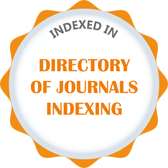
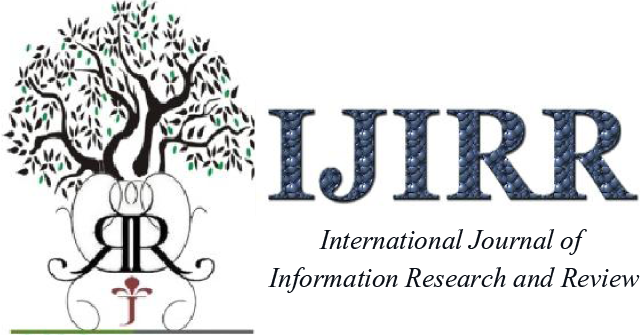





















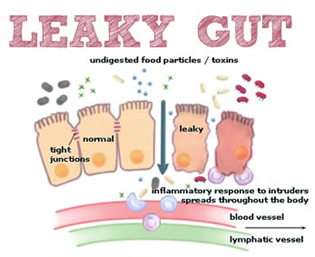
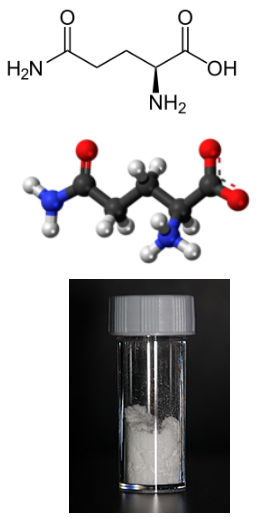
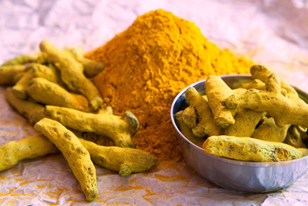
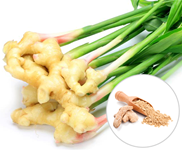
 Scientia Ricerca is licensed and content of this site is available under a Creative Commons Attribution 4.0 International License.
Scientia Ricerca is licensed and content of this site is available under a Creative Commons Attribution 4.0 International License.